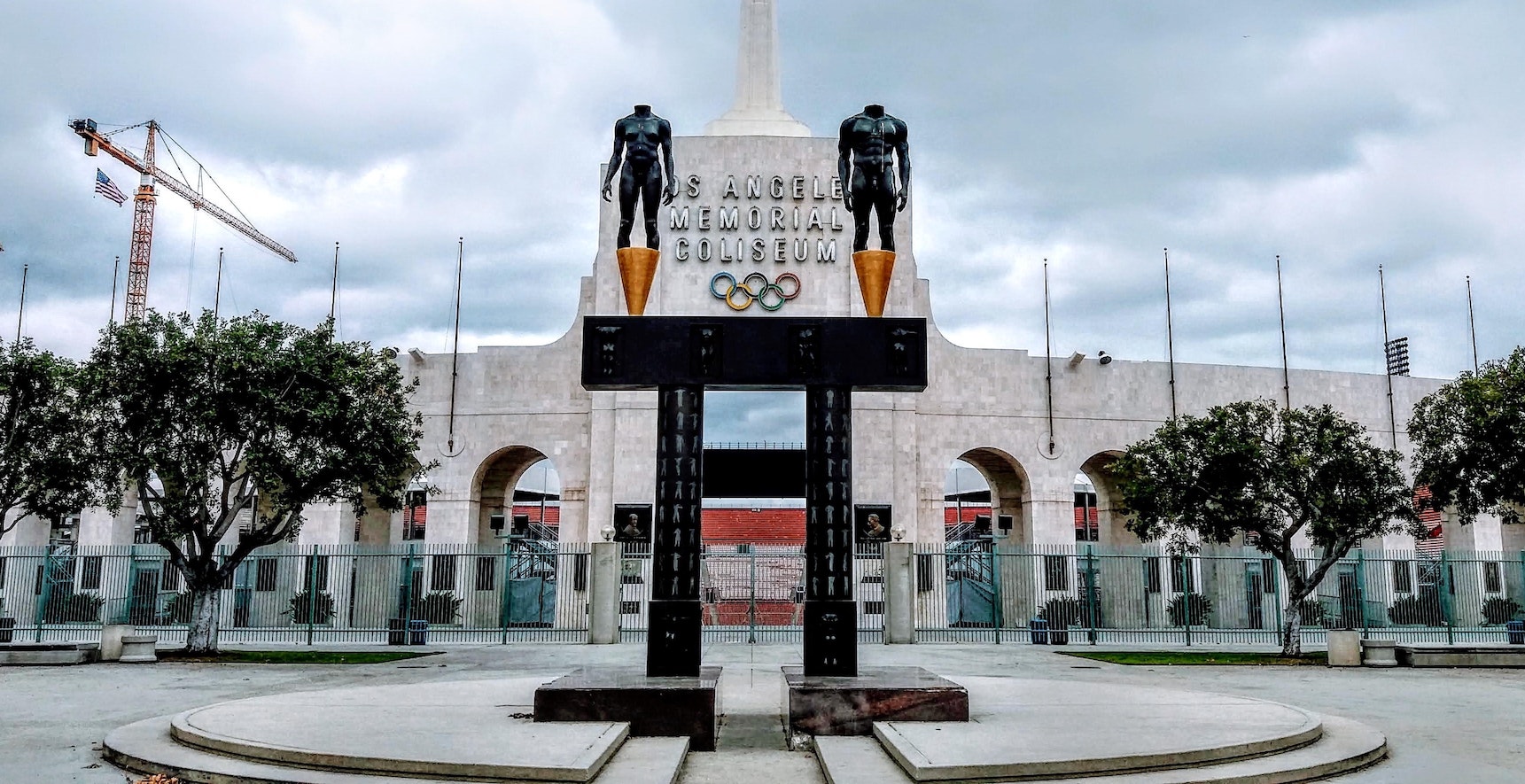Right now, the fate of the 2020 Toyko Summer Olympics is undecided. Despite the quick cancellation of almost every international sporting event, the Japanese government insisted that the Games would go on as planned until late March, when they postponed it to the summer of 2021. Since then, the International Olympic Committee (IOC) has taken a more cautious tone, leaving open the possibility that they may not be held at all.
If cancelled, this would be the first time since 1944 that this seemingly inevitable bi-annual event has been called off. Since then, the business of the Olympics has grown to massive city-shaping force well past the scope of just being about sports. Once seen purely as a great honour that would bring economic benefits and prestige to a host, the well-documented negative effects have begun to dissuade more and more cities from pursuing it. Now, the uncertain future of the Tokyo Games suddenly makes these mega-events seem less inevitable than they were before the COVID-19 pandemic. This ambiguity leaves an opportunity for those who have long opposed the Olympics for their overstated economic benefits, massive increase of policing and surveillance, and ability to remake cities with purpose-built stadiums and massive gentrification.
In his new book, NOlympians: Inside the Fight Against Capitalist Mega-Sports in Los Angeles, Tokyo and Beyond, former U.S. Olympic soccer team player and prolific Olympic critic Jules Boykoff focuses on the activists who have been organizing to stop the Olympics in their cities.
Anyone familiar with Boykoff’s work will not be surprised by critiques he makes of the Games in his now razor-sharp stump speech. Describing himself as once an athlete who was able to participate in the full grandeur of the Games without a larger political awareness, Boykoff’s years of study and research have turned him into sharp and discerning observer.
This is his fourth book on the subject, and second specifically on the activism opposing the Games. By now, his oeuvre serves as an encyclopedia of all the damaging effects of the Olympics, but in this book, his argument benefits from a case study that is uniquely tied to the recent rise in visibility of democratic socialism, and the connection these activists made to a political project that doesn’t end at the bounds of an officially designated Olympic city.
NOlympians follows the founding and operation of NOlympics L.A., a project spearheaded by the Los Angeles chapter of the Democratic Socialists of America. While this is far from the first effort organized in opposition to the Olympics in a specific city, this campaign is notable for its framing of the Olympics as part of a larger neoliberal agenda that prioritizes private-public partnerships over social welfare, where the public pays the cost for private profit. Boykoff notes how “we face a triple crisis with three central, interlocking components: widening inequality, a democracy deficit, and climate disruption” and how “DSA-L.A. has made all three areas part of their NOlympics L.A. campaign, foregrounding capitalism as the prime culprit.”
Throughout the book, Boykoff convincingly demonstrates that zeroing in on anti-Olympics organizing can help us understand how local movements interact with global issues. Los Angeles is an ideal city to focus on because of its long history with the Olympics as a host in 1932 and 1984, and the selection of the city by the IOC for the 2028 Games coincided with growing membership and interest in L.A.-DSA.
Boykoff explores how these organizing efforts have not only opposed the Games as a singular event, but have been integrated into a compelling systematic critique of the forces that created the Games. Bridging the gap between the general and specific, he explores the unique possibilities that this type of activism allows for.
Paradoxically, in city after city, the Olympics have jumpstarted on-the-ground, democratically organized, intersectional coalitions made up of various social movements in the host city. Often, anti-Olympics organizers do not believe that they will stop the Games — especially once they have already been allocated to their city — but they know that the Olympics provide a once-in-a-generation opportunity to coalesce activist coalitions that might otherwise not emerge.
Situating his on-the-ground research within a strong understanding of how similar movements have developed across the world, combined with his own personal experiences with the Games, Boykoff has come up with a book on the Olympics that is equally about organizing and coalition building. This book would be well read by anyone engaged in questions of how to effectively participate in issue-based advocacy, as this kind of thoughtful and contextualized writing about ongoing organizing efforts is rare.
Structured largely around recent interviews with members of the NOlympics L.A. coalition, the book sometimes reads more like an organizing guidebook than as a simple history of a social movement. Boykoff recounts the specific politics in L.A., explores the strengths and limitations of focusing on a media strategy, and makes space for NOlympics L.A. organizers to reflect on how their work fits into the larger goals of DSA to build support for democratic socialism nationally. Boykoff’s analysis of their tactics makes for a great study of a local effort engaging with an international force, which as vast as it may seem inevitably has visible targets, a role often played by Los Angeles Mayor Eric Garcetti.
In this case, centering the work of activists on the ground gives Boykoff’s writing about a much-studied topic a new sense of urgency and closeness. The Olympics often exists in the abstract, a world of larger-than-life athletes and secretive closed-door IOC meetings, but the immediacy brought by this book shows how the Olympics affect people on the ground, and how it’s possible to fight back. While the Games are put on hold, activists now have the chance to make the case for either a reformed Olympics or an end to the Olympics altogether, instead of returning to a pre-COVID-19 normal.
Michael Nicholas is an urban planner based in New York and an editor at FailedArchitecture.com
Image: B.P. Miller/Unsplash



